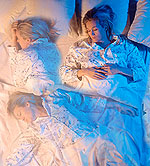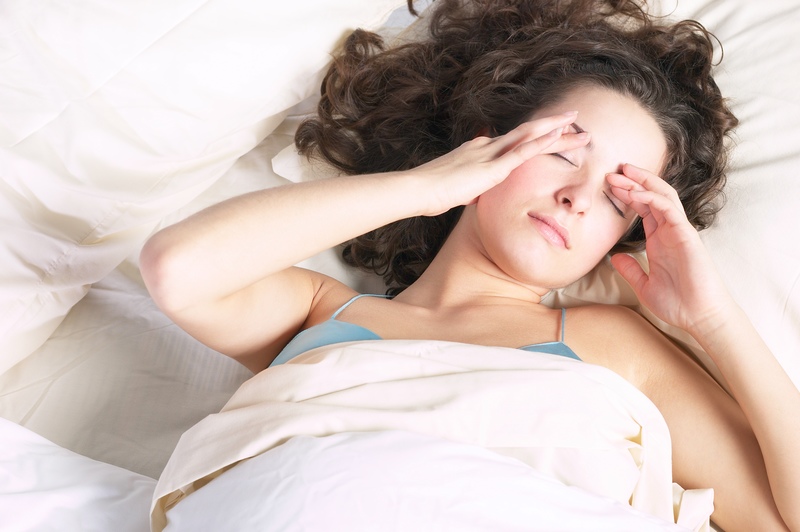
MONDAY, Jan. 3 (HealthDay News) — Treatment with a common therapy helped obstructive sleep apnea patients gain more energy and become less fatigued in just three weeks and the gains appeared to be the result of more than just a placebo effect, a new study shows.
People with sleep apnea often unconsciously wake up dozens of times during the night when their airways become blocked. The condition can cause heavy snoring, daytime sleepiness and fatigue.
Patients with the condition often undergo sleep tests and are then prescribed continuous positive airway pressure (CPAP) therapy. The treatment entails wearing a mask during sleep that keeps their airwaves open by sending a steady stream of air down their throats.
In the new study, published in the Jan. 1 issue of the journal Sleep, 59 patients with an average age of 48 were assigned to receive treatment with either a CPAP device or a placebo (sham) device. The study participants were trained on how to use the device they were assigned and told to bring it home and use it every night for three weeks. The patients completed questionnaires on their levels of fatigue and daytime sleepiness both before and after the study period.
According to the results, after the three-week treatment period, participants receiving CPAP therapy were no longer experiencing clinically significant levels of fatigue.
“This was one of the first double-blind studies of the effects of CPAP on fatigue,” study author Lianne Tomfohr, a graduate research assistant in the joint doctoral program at San Diego State University and the University of California at San Diego, said in a news release from the American Academy of Sleep Medicine.
“These results are important, as they highlight that patients who comply with CPAP therapy can find relief from fatigue and experience increases in energy and vigor after a relatively short treatment period,” Tomfohr added.
An estimated 2 percent to 4 percent of adults have sleep apnea, according to background information from the American Academy of Sleep Medicine.
More information
For more about sleep apnea, visit the U.S. National Heart, Lung and Blood Institute.

